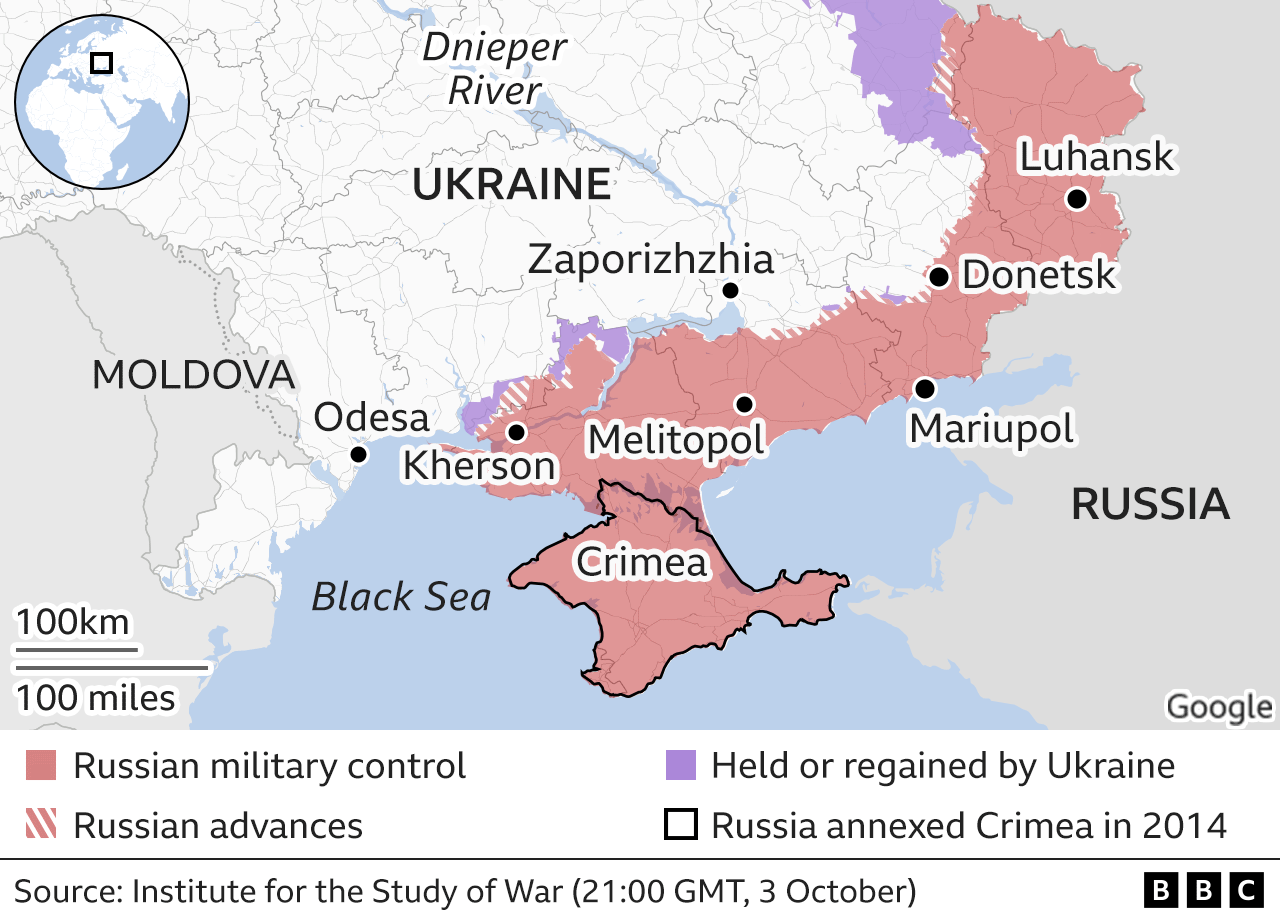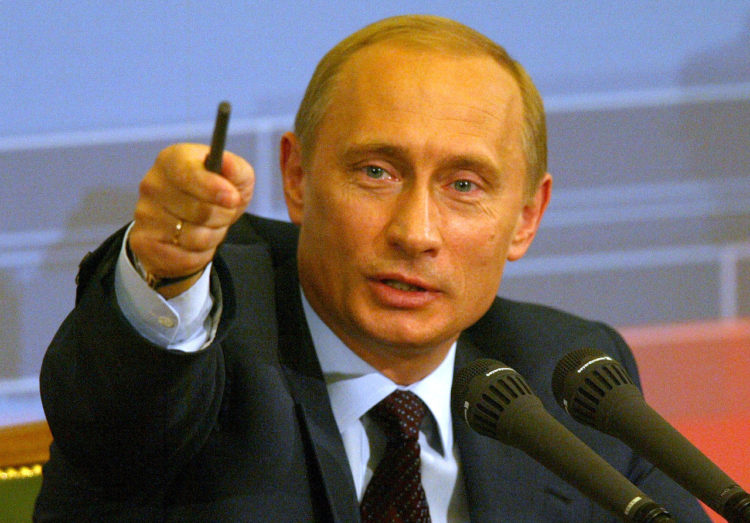By Ben Kerrigan-
Russian President, Vladimir Putin, has promised to stabilise regions of Ukraine which he annexed, after signing laws that illegally claimed the territories.
The documents finalising the annexation, carried out in violation of international laws, were published on a Russian government website. In a defiant move, the Kremlin held the door open for further land grabs in Ukraine.
Speaking in a conference call with reporters, Kremlin spokesman Dmitry Peskov said that “certain territories will be reclaimed, and we will keep consulting residents who would be eager to embrace Russia.”
Putin last week signed treaties that purport to absorb Ukraine’s Donetsk, Luhansk, Kherson and Zaporizhzhia regions into Russia. The move followed Kremlin-orchestrated “referendums” in Ukraine that the Ukrainian government and the West have dismissed as illegitimate.
Peskov did not specify which additional Ukrainian territories Moscow has its sights on for annexation, neither did he specify whether more sham referendums are on the piepline.
Ukrainian President Volodymyr Zelenskyy’s office, Andriy Yermak, condemned the annexation. He wrote on his Telegram channel shortly after Putin signed the annexation legislation approved by Russia’s parliament that “the worthless decisions of the terrorist country are not worth the paper they are signed on.”
“A collective insane asylum can continue to live in a fictional world,” Yermak added.
Zelenskyy responded to the annexation by announcing Ukraine’s fast-track application to join NATO. In a decree released Tuesday, he also ruled out negotiations with Russia, declaring that Putin’s actions made talking to the Russian leader impossible.
Russia and Ukraine gave conflicting assessments Wednesday of a Ukrainian counter-offensive in the Russian-occupied Kherson region. A Moscow-installed regional official insisted that Ukrainian advances had been halted.
“As of this morning … there are no movements” by Kyiv’s forces, Kirill Stremousov said in comments to state-run Russian news agency RIA Novost. He vowed the Ukrainian fighters “won’t enter (the city of) Kherson.”
The deputy head of the Ukrainian regional government, Yurii Sobolevskyi, said military hospitals were full of wounded Russian soldiers and that Russian military medics lacked supplies. Once they are stabilized, Russian soldiers were getting sent to Crimea, which Russia annexed from Ukraine in 2014.
In the Moscow-annexed Donetsk region, where Ukrainian forces still control some areas, Russian forces shelled eight towns and villages, the Ukrainian presidential office said.
It controls significant parts of the other two regions, and has made recent gains in Donetsk.
However, Kremlin spokesman Dmitry Peskov said Russia would retake any territory that had been lost.
Facing questions over the recent losses, he told reporters: “There is no contradiction here. They will be with Russia forever, they will be returned.”
In a speech to teachers on Russian teachers’ day, Mr Putin said he would “calmly develop” the annexed territories.
However, Andrey Kartopolov, the chairman of the State Duma defence committee, told state media that Russia needed to stop lying about what was happening on the battlefield, saying that Russians were not stupid.
Ukrainian forces are making gains in both the south and the east.
Serhiy Haidai, Ukrainian governor of Luhansk, told the BBC on Wednesday that six villages in the region had been recaptured.
And President Zelensky later said Ukraine had liberated three more villages in the southern region of Kherson.
It comes after a series of gains in Kherson the previous day, including the strategically key village of Davydiv Brid.

Russia is still working to mobilise reservists, after Mr Putin announced a call-up last month of 300,000 people who had completed compulsory military service.
But Mr Putin has rowed back on which groups will be affected, after strong opposition and protests in Russia against the move.
He has signed a decree exempting several categories of students, including first-time students at accredited institutions, and certain types of postgraduate students – such as those in the field of science
Meanwhile, Rafael Grossi, the head of UN nuclear watchdog the International Atomic Energy Agency (IAEA), is on his way to Kyiv.
Mr Grossi wrote on Twitter that he was travelling for “important meetings” on the need for a protection zone around the Zaporizhzhia nuclear plant.
Intense fighting around the nuclear plant near the front line which has been under Russian control since March. has been a worrying source of concern.
The IAEA, which has two experts onsite, said Ukrainian operating staff are preparing to restart one of the reactors at reduced power to provide heat for the plant.
Mr Putin signed a decree saying that the Russian government would integrate the plant’s nuclear facilities as Russian property.
But the head of Ukrainian nuclear operator Enerhoatom, Petro Kotin, said that all decisions about the plant’s operation will be taken in the company’s central office in Kyiv.
“We will continue to work in accordance with Ukrainian legislation within the Ukrainian energy system, in Enerhoatom,” he is quoted by the Interfax-Ukraine news agency as saying.




